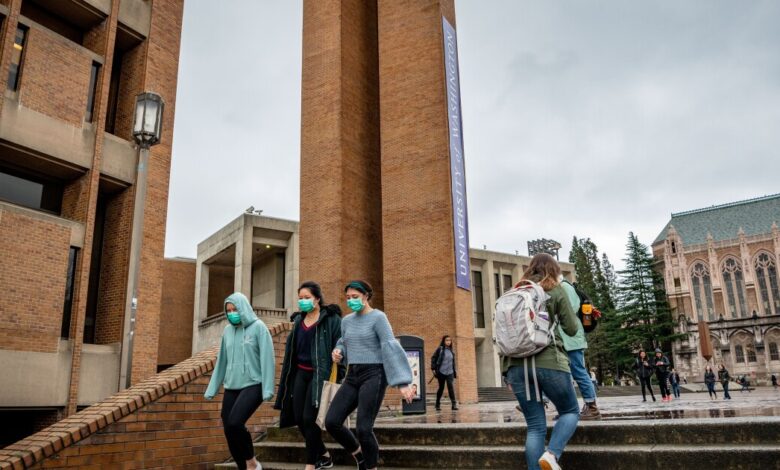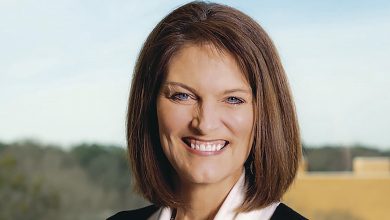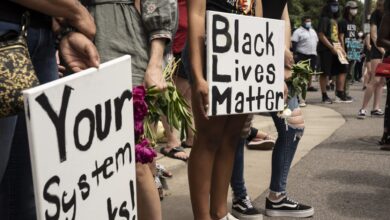Students’ Trust in Their Colleges Held Steady During Covid’s Early Days, Study Finds

Despite widespread frustration caused by the sudden shift to online learning in the spring of 2020, a new study shows that most students’ sense of trust in higher education was largely unaffected by the Covid-19 disruptions — at least in the early months of the pandemic.
Students with disabilities even reported increased trust in their colleges, which is “likely the result of some very concerted effort to make sure that transition was a smooth one for those who were identified as needing extra support,” said Shannon Calderone, an assistant professor of educational leadership at Washington State University and the lead author of the study. Self-paced, online learning also worked better for some of those students, Calderone said.
Students “were, on the whole, receptive to the efforts of the institutions to make that transition as smooth as possible.”
The study, which was published this month in American Behavioral Scientist, used National Survey of Student Engagement data from more than 8,300 students at 29 colleges from February to March 2020. The study stressed the importance of understanding “how the turbulence of the pandemic has recalibrated the nature of the relationship between students and their institutions,” looking specifically at the role of trust.
While many students’ lives were upended by the campus closures, the new research suggests that, initially, most students trusted that their colleges did the best they could.
“Institutions were reasonably responsive and students also were, on the whole, receptive to the efforts of the institutions to make that transition as smooth as possible,” Calderone said. She worked on the study with Kevin Fosnacht, a research scientist at Indiana University at Bloomington’s Center for Postsecondary Research, where he works on the NSSE project..
But the findings differ for Black and first-generation college students, whose trust in their institutions declined during this time.
The study builds on Calderone and Fosnacht’s earlier research about the racial trust gap, indicating that the pandemic exacerbated distrust “for those students who were most likely to be distrustful in the first place,” Calderone said.
“Part of what we know from a broader understanding of trust patterns across the wider population within the U.S. is that there is a lower sense of broad social trust among low-income and particularly people of color,” Calderone said. “And so what we’ve seen then is that there’s a consistency in that within the student population as well.”
Calderone and Fosnacht noted that trust increased among more privileged populations that were better equipped to handle campus closures and the sudden shift to online learning.
Calderone said this study suggests that “we can be fairly optimistic about the way in which institutions responded to this incredibly challenging moment in our history.” But colleges need to “be more cognizant of the kinds of circumstances in which students are being asked to continue their education and be successful,” she said, referring to the students who didn’t have access to the technology and resources they needed, and who were struggling with economic distress and family responsibilities.
Most colleges represented in the National Survey of Student Engagement are predominantly white institutions, Calderone noted, so the data mostly reflect the experiences of Black students who attend those campuses. The study shows, she said, that predominantly white institutions should be more attentive to Black students’ needs.
An outstanding question is how students’ trust has evolved since then, after more than two years of Covid-related disruptions to their education. Many students have expressed concerns about Zoom classes, social-life, and how their colleges have handled the pandemic.
Source link






